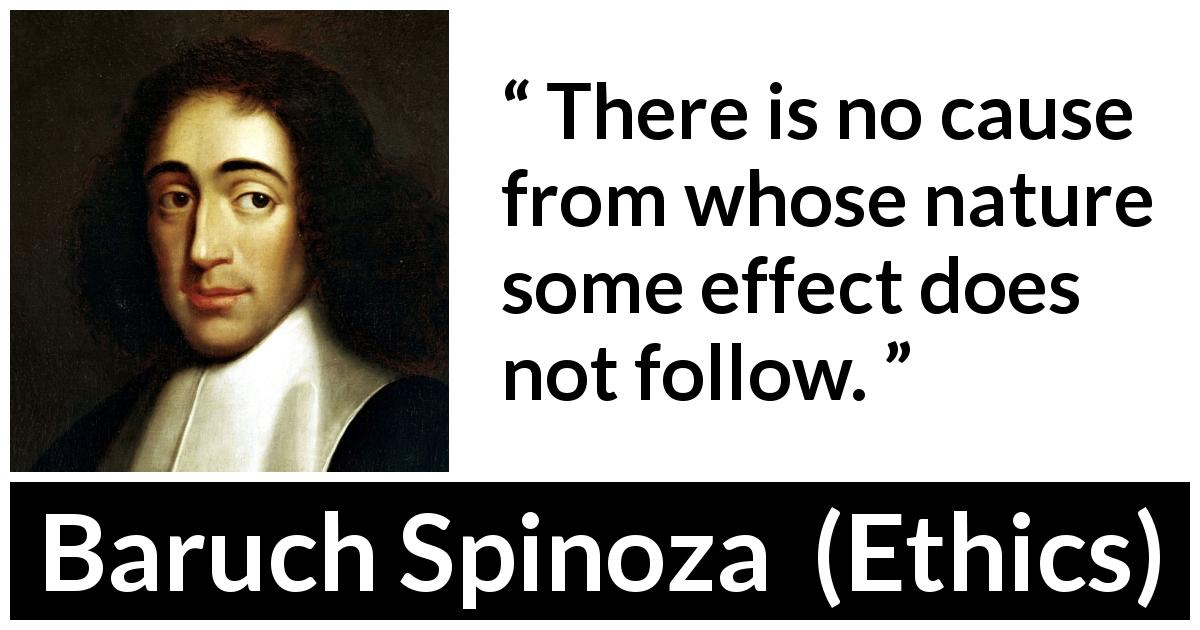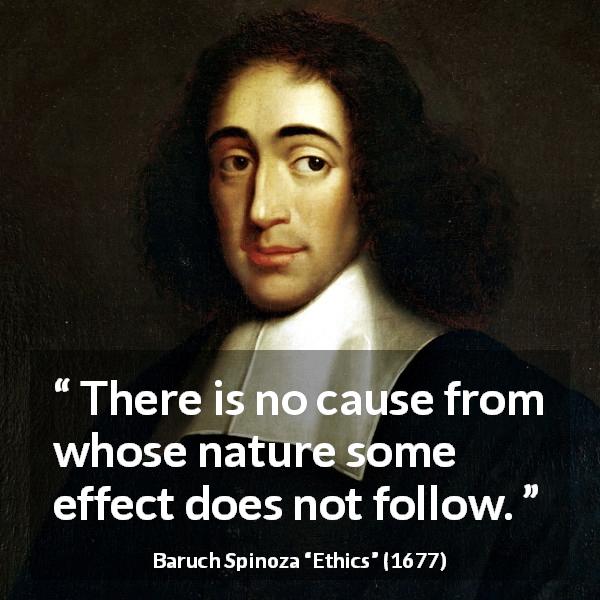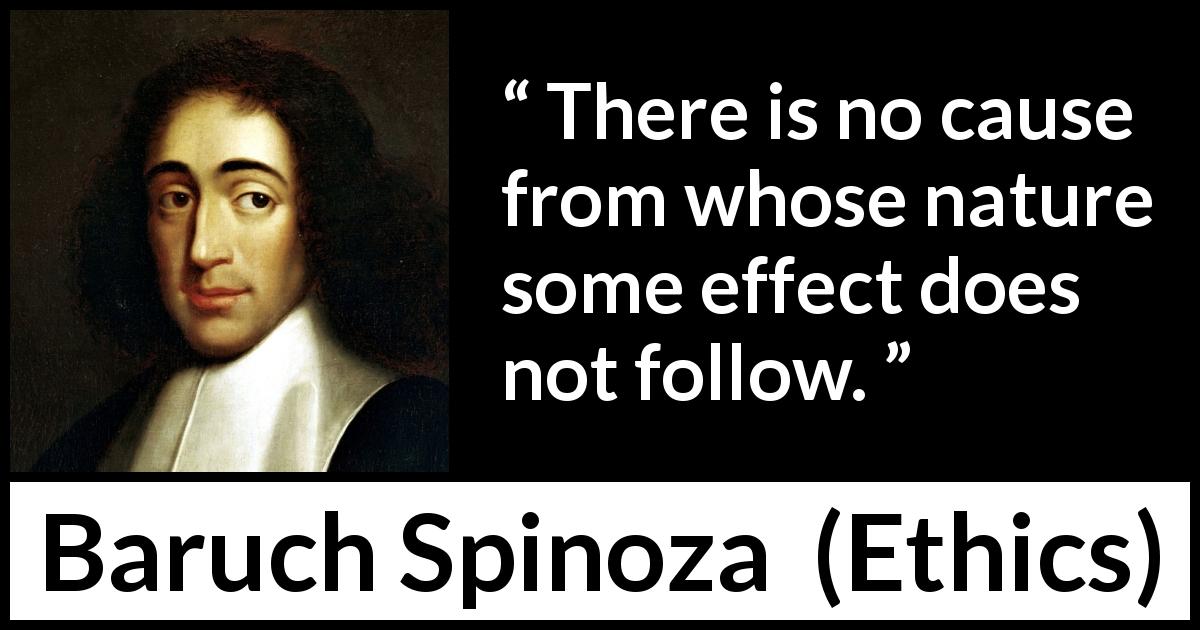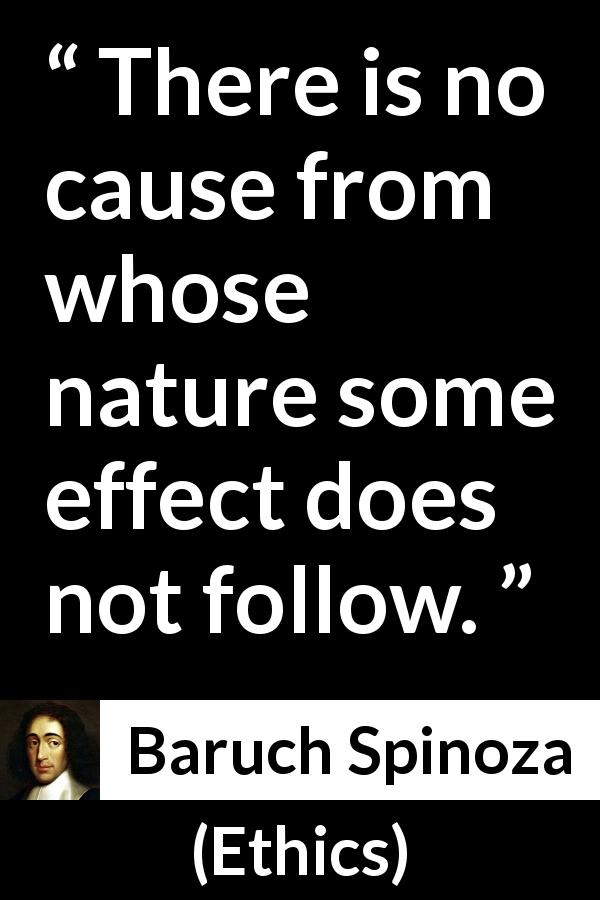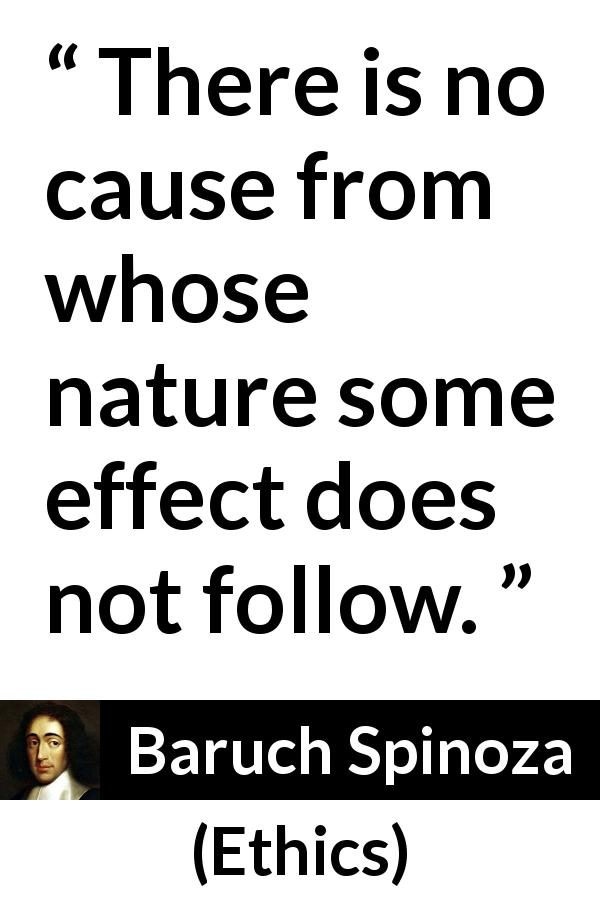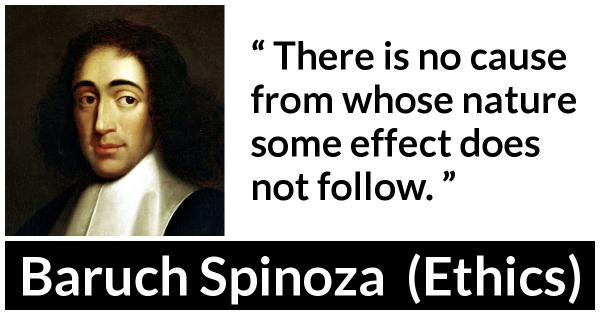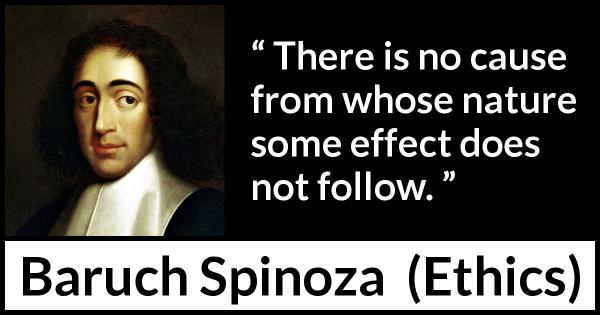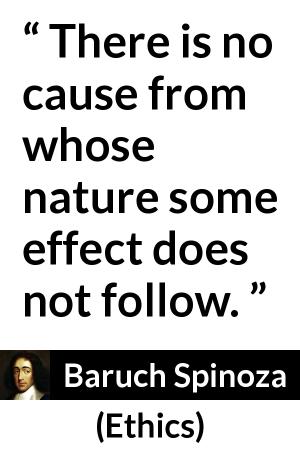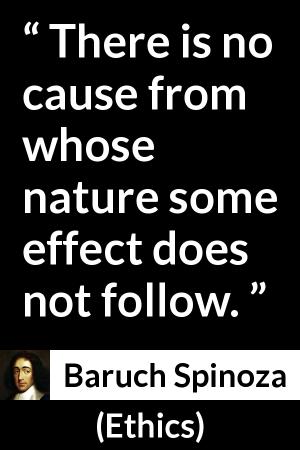“ There is no cause from whose nature some effect does not follow. ”
Baruch Spinoza, Ethics (1677). copy citation
| Author | Baruch Spinoza |
|---|---|
| Source | Ethics |
| Topic | nature cause effect |
| Date | 1677 |
| Language | English |
| Reference | |
| Note | Translated by R. H. M. Elwes |
| Weblink | http://www.gutenberg.org/files/3800/3800-h/3800-h.htm |
Context
“Proof.—Whatsoever is in God's power, must (by the last Prop.) be comprehended in his essence in such a manner, that it necessarily follows therefrom, and therefore necessarily exists. Q.E.D.
PROP. XXXVI. There is no cause from whose nature some effect does not follow.
Proof.—Whatsoever exists expresses God's nature or essence in a given conditioned manner (by Prop. xxv., Coroll.) ; that is, (by Prop. xxxiv.) , whatsoever exists, expresses in a given conditioned manner God's power, which is the cause of all things, therefore an effect must (by Prop.” source
PROP. XXXVI. There is no cause from whose nature some effect does not follow.
Proof.—Whatsoever exists expresses God's nature or essence in a given conditioned manner (by Prop. xxv., Coroll.) ; that is, (by Prop. xxxiv.) , whatsoever exists, expresses in a given conditioned manner God's power, which is the cause of all things, therefore an effect must (by Prop.” source
